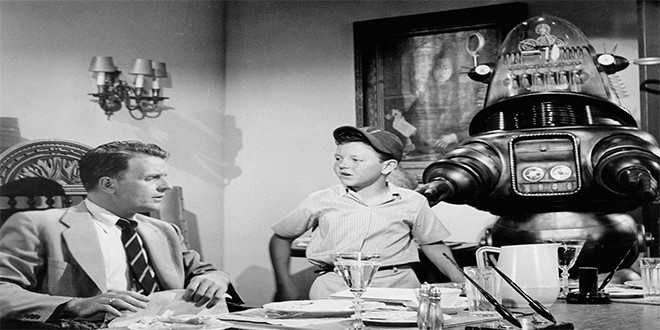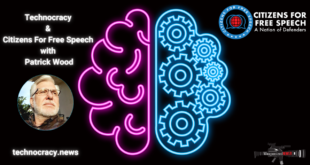By Randy Shahbazian | Fresno Bee | January 10, 2015
Technology continues to advance at dizzying speed. Self-driving cars already have been on the road for several years, and they will be available to the public in several more. Improvements in solar electricity equipment, along with sophisticated new battery storage systems, soon will provide homeowners with affordable, clean and plentiful electricity with the added benefit of off-grid capabilities independent of the local energy utility monopoly.
Technological advancements are ushering in a new era of abundance and higher quality of life. Yet the role of the human being in this new technologically-advanced civilization is uncertain at best.
As humanity relies more and more on computers and machines, are we in danger of becoming obsolete?
Bill Joy’s seminal 2000 Wired magazine article, “Why the Future Doesn’t Need Us,” discusses futurist Ray Kurzweil’s thus far accurate predictions of smart phones, iTunes and unmanned drones for combat. Kurzweil further asserts that by 2029, the elites will begin achieving the singularity of man merging with machine in the form of computers being implanted in people’s eyes and ears.
As artificial intelligence systems eventually begin running the entire planet, could the elites in control of this technocracy simply decide that very few of us are actually needed for the world of the future?
Many elites in the modern eugenics movement are calling for huge reductions of the world’s population. These horrific plans are rationalized by euphemistic terms including “sustainability” and saving the earth. The underlying premise of the eugenics philosophy is that humans are akin to a scourge or a disease of the earth.
As our technological civilization accelerates, we are at high risk of being hijacked by the technocratic elites. This unfavorable outcome will be avoided by actively making humanity the central consideration in the adoption of any new technology.
Self-driving automobiles or buses would not necessarily be a bad thing. It would be amazing to have an autonomous (i.e., driverless) taxi cab arrive in my driveway to take me to the farmers’ market as I sit back reading The Fresno Bee. But I still want the option of driving my own motor vehicle with the inherent satisfaction of piloting myself safely to my destination. Furthermore, I may even occasionally elect to ride a horse to my destination as self-driving buses zoom past me.
Mechanized farming techniques will contribute to efficiently-produced abundant food supplies for our society. Yet, completely divorcing the farmer from the land cannot be the ultimate goal for the farm of the future.
There is ample evidence that having physical skin contact with the soil is healthy, enjoyable and even therapeutic for humans. No virtual-reality computer simulation will ever replace the experience of giving my young children a bumpy, dusty ride on our old Ford Jubilee tractor, the same tractor on which my grandfather gave me rides over three decades ago.
If housing, food, water, consumer goods and transportation all become very inexpensive and plentiful, our challenge will then be to maintain our sense of what it means to be human. We should not consider the time-consuming process of hand-knitting a sweater to be a waste of time. And even if we someday have GPS-controlled lawnmowers, there still will be value in having your 10-year-old mow the lawn the old-fashioned way.
In addition to the sentimental reasons for maintaining our human activity traditions in the presence of ever-advancing technology, the more practical reasons for doing so are equally important. When technology fails, survival is much easier when people possess the knowledge and skills to provide for their basic needs without the assistance of technology.
People can use morally-neutral technology for either good or evil purposes. We are so very fortunate to be alive during such an exciting period of human history as we experience this explosion of scientific knowledge. However, the knowledge must be harnessed and channeled appropriately.
We must prevent the anti-human eugenics forces from using the new technology against us as we strive to discredit this destructive philosophy permanently. We also must simultaneously embrace the fruits of the new technology as well as maintain our equally important human traditions. Accomplishing the latter goal will facilitate the former.
Randy Shahbazian is a psychiatrist residing in Fresno.
Sources:
http://www.fresnobee.com/2015/01/09/4323213_randy-shahbazian-are-people-slowly.html?sp=/99/274/&rh=1
http://archive.wired.com/wired/archive/8.04/joy.html
 Weaponized News New World Order politics, economics and current events
Weaponized News New World Order politics, economics and current events







